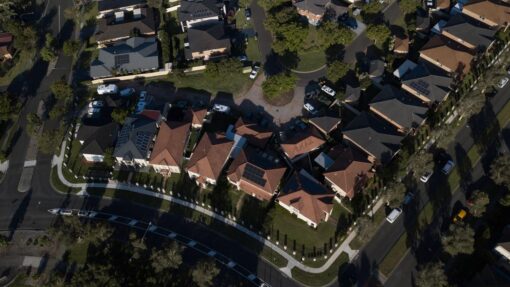Qld govt failing to manage social housing
Marty Silk |
Thousands of Queenslanders are missing out on social housing because government is failing to build enough homes, keep an accurate waiting list or manage its existing stock, a report says.
There are 30,922 households on the state’s housing register, which has grown by 78 per cent since 2018.
Auditor-General Brendan Worrall says government plans to start building 6365 social and affordable homes by 2025 is unlikely to cut the waiting list.
He says 19,025 households on the list will be offered housing, but the remaining 11,897 are likely to miss out.
“These dwellings alone will not be sufficient as growth of the register is likely to accelerate with rising interest rates and a tightening rental market,” Mr Worrall wrote in a report released on Tuesday.
The government’s failure to keep an accurate and detailed housing register, the auditor-general said, is compounding the problem.
About 61 per cent of people on the waiting list are in “very high need” and 39 per cent are in lower need groups, cannot be contacted or have inactive applications.
Before 2019, applicants were categorised as either low, moderate or high need, the report said.
However, the housing department has recorded all applicants as being in “high need” since then, regardless of their situation.
Some people who applied for a home after 2019 are now either uncontactable or have inactive applications.
As the list is not centrally monitored and updated, the report says, people who should not be on it may be listed above those who are in need and have been waiting for three years.
“Many applicants on the register are still in these categories and are unlikely to be allocated housing,” Mr Worrall wrote.
One in five housing applicants examined by the auditor-general had not had their needs correctly recorded by the department.
The report said half of those had been approved for housing without the required internal checks.
Mr Worrall also raised concerns about how existing housing stock was being managed by the department.
About 15 per cent of the state’s 74,133 social housing dwellings are under-occupied, meaning they have vacant bedrooms.
Tenants do not have to relocate to smaller dwellings if people move out, and there is no program to help residents move into the private housing market.
“This could free housing for applicants on the register,” Mr Worrall wrote.
The auditor-general recommended the government regularly review and update the housing register and model future demand.
He advised the department to set up a new system to prioritise applicants based on their need, and to ensure all applicants are checked before housing is allocated to them.
The government should also better manage tenants’ needs to ensure bedrooms are not being left vacant, he said.
AAP


